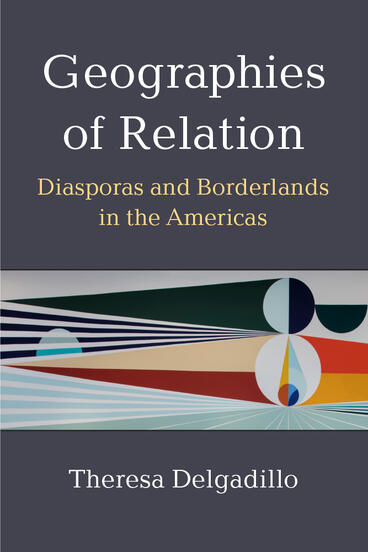Geographies of Relation
Diasporas and Borderlands in the Americas
How diaspora and borderlands subjects from across the Americas have represented and performed their interrelationship
Description
Geographies of Relation offers a new lens for examining diaspora and borderlands texts and performances that considers the inseparability of race, ethnicity, and gender in imagining and enacting social change. Theresa Delgadillo crosses interdisciplinary and canonical borders to investigate the interrelationships of African-descended, Latinx and mestizx peoples through an analysis of Latin American, Latinx, and African American literature, film, and performance.
Not only does Delgadillo offer a rare extended analysis of Black Latinidades in Chicanx literature and theory, but she also considers over a century’s worth of literary, cinematic, and performative texts to support her argument about the significance of these cultural sites and overlaps. Chapters illuminate the significance of Toña La Negra in the Golden Age of Mexican cinema, reconsider feminist theorist Gloria Anzaldúa’s work in revising exclusionary Latin American ideologies of mestizaje, delve into the racial and gender frameworks Sandra Cisneros attempts to rewrite, unpack encounters between African Americans and Black Puerto Ricans in texts by James Baldwin and Marta Moreno Vega, explore the African diaspora in colonial and contemporary Peru through Daniel Alarcón’s literature and the documentary Soy Andina, and revisit the centrality of Black power in ending colonialism in Cuban narratives. Geographies of Relation demonstrates the long histories of networks and exchanges across the Americas as well as the interrelationships among Indigenous, Black, African American, mestizx, Chicanx, and Latinx peoples. It offers a compelling argument that geographies of relation are as significant as national frameworks in structuring cultural formation and change in this hemisphere.
Theresa Delgadillo is a Vilas Distinguished Professor of English and Chican@/Latin@ Studies at the University of Wisconsin-Madison.
Reviews
"Delgadillo’s Geographies of Relation is a marvelous, timely study that will have a foundational impact on the field of Latinx Studies. It offers a compelling and significant cultural analysis of Afro/Latinx creativity and expressive forms and illustrates their transformative importance. Scholars of every discipline will find Geographies of Relation helpful and inspiring."
—Mary Pat Brady, Author of Scales of Captivity: Racial Capitalism and the Latinx Child.
- Mary Pat Brady
"Geographies of Relation amplifies mostly silenced histories and dialogues, including hemispheric investments in anti-Blackness within discussions of mestizaje among diaspora and borderlands subjects. This book makes visible the historic investments among diaspora and borderlands subjects that transform anti-Blackness into acts of solidarity and contributes to the study of literature, film, music, and performance that circulate within and across the Americas."
—Michelle Habell-Pallan, Author of Loca Motion: The Travels of Chicana and Latina Popular Culture
- Michelle Habell-Pallan

